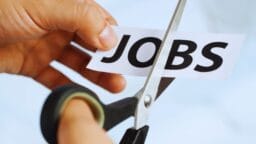US Consumer Confidence Declines in November Post-Government Shutdown
In November, US consumer confidence plummeted to its lowest point since April, reflecting a downturn following the recent government shutdown. The outlook regarding business conditions over the next six months has grown increasingly bleak.
According to the Conference Board, the consumer confidence index dipped by 6.8 points, falling to 88.7 from October’s figure of 95.5. This marks the lowest level since April.
“Consumer confidence has significantly declined in November, reaching its nadir since April after a prolonged period of stability,” stated Dana M. Peterson, Chief Economist at the Conference Board.
The survey indicates that 17.9% of respondents perceive jobs as ‘hard to get’, a modest decrease from 18.3% in October.
Additionally, the percentage of consumers who categorize jobs as ‘plentiful’ fell to 27.6% in November, down from 28.6% the previous month.
Inflation expectations among consumers remained persistently elevated, with the median anticipated rate increasing to 4.8%. Moreover, consumers exhibited pronounced pessimism regarding business conditions, labor market dynamics, and income prospects six months hence.
- Only 15.9% of consumers foresaw improved business conditions, a decline from 18.9% in October; conversely, 27.7% anticipated worsening conditions, up from 22.2%.
- Only 14.6% expected job availability to increase, down from 15.8% in October; conversely, 27.5% predicted fewer job opportunities, a decrease from 28.8%.
- 15.3% believed their incomes would grow, down from 18.2% in October, while 13.8% expected a decline, compared to 11.8% previously.
“We do not foresee consumer spending plummeting imminently, as spending appears to have diverged from confidence levels; however, the potential for downside risks is intensifying,” quoted Thomas Simons, chief US economist at Jefferies, an investment bank.
The survey also revealed a paradox: the proportion of consumers who believe a recession is ‘very likely’ in the coming 12 months has decreased; however, the number of respondents perceiving that the economy is already in recession has risen for the fourth month in succession.
Consumer comments regarding economic influencers predominantly revolved around prices and inflation, trade tariffs, and political issues, with notable mentions of the federal government shutdown.
Although references to the labor market have lessened slightly, they remain prominent among recurring themes, Peterson elaborated.

She remarked that the overall sentiment from November’s comments appeared somewhat more negative compared to October.
Ben Ayers, a senior economist at Nationwide, noted that while consumer spending has remained resilient into 2025, deteriorating survey results suggest many consumers may be reaching their limits as soaring prices and labor market apprehensions dampen their spending intentions, at least in the immediate future.
Source link: Livemint.com.






